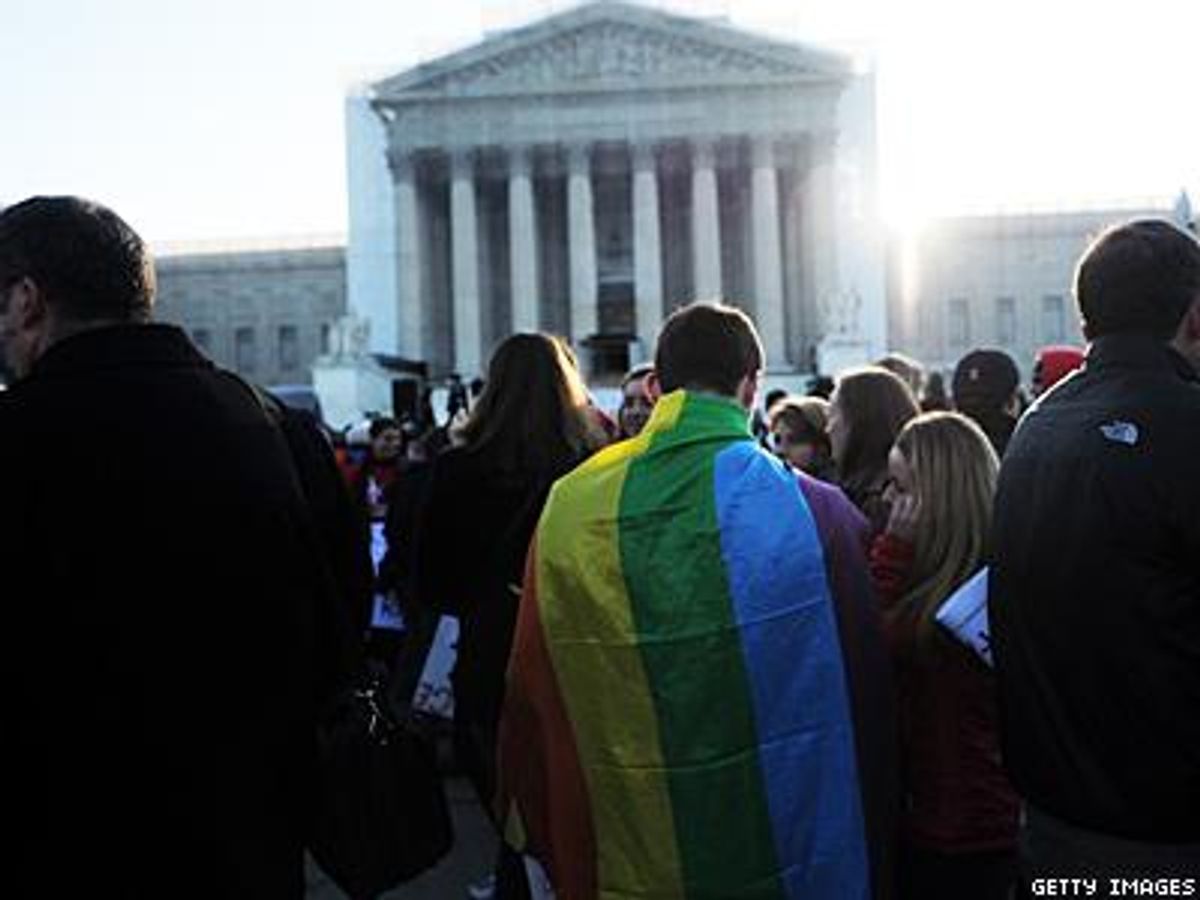WASHINGTON, D.C. -- When both sides in the challenge to Proposition 8's constitutionality presented their views today to the Supreme Court's nine justices, the unfolding argument inside the courtroom came with some big moments.
Biggest takeaway: The justices had so many options on the table that it was nearly impossible to discern where they were headed with their inquiries. David Boies noted that the "questions jumped around some" and, when asked how the justices might decide the question of standing, Ted Olson offered, "I have no idea." Freedom to Marry's Evan Wolfson later told me that the questioning showed "the justices were really wrestling with the way they'll approach this case."
Best exchange: Justice Sonia Sotomayor asked the proponents' lawyer, "Outside of the marriage context," can you think of any other rational reason for denying gays and lesbians certain rights, such as denying them a job or housing? Cooper conceded, "Your honor, I cannot." If that is true, she responded, "why aren't they a class? If they're a class that makes any other discrimination improper." Cooper could not defend the point and instead suggested, "Our submission is that same-sex couples and opposite-sex couples are not similarly situated."
As expected: Justice Antonin Scalia did go on a rant of sorts, insisting that Olson explain, "When did it become unconstitutional to exclude homosexual couples from marriage?" Olson offered, respectfully, "When did it become unconstitutional to prohibit interracial marriage?" (The suggestion being that it became so when the Supreme Court decided Loving v. Virginia in 1967.) Scalia responded, "Don't give me a question to my question." Then, like a dog with a bone, he insisted on getting a date certain when it became unconstitutional. Finally, Olson conceded, "There's no specific date in time."
Most notable: Justice Anthony Kennedy, the "swing" vote, asserted rather passionately for an otherwise stoic judge that "there is an immediate legal injury" if same-sex couples continue to be excluded from entering legal marriages. "That's the voice of these children," he said, referring to an estimated 40,000 kids who California same-sex couples are raising. Cooper responded, "I certainly would not dispute the importance of that question."
Not to be overlooked: Standing is a real question in this case, and the justices grilled both Olson and Charles Cooper, the lawyer for proponents. The court is obviously very seriously considering whether the proponents in the case really did have the authority to represent the state and the people of California when they appealed district court judge Vaughn Walker's ruling. Following the arguments, Olson said that if the court rules the proponents did not have standing to challenge the ruling, that would be a "win" for marriage equality. There has been some debate about what would happen if that was the view of the court, but many experts believe, as Olson seems to, such a decision would leave Judge Walker's ruling in place and same-sex marriages would return to California statewide.


















































































Viral post saying Republicans 'have two daddies now' has MAGA hot and bothered